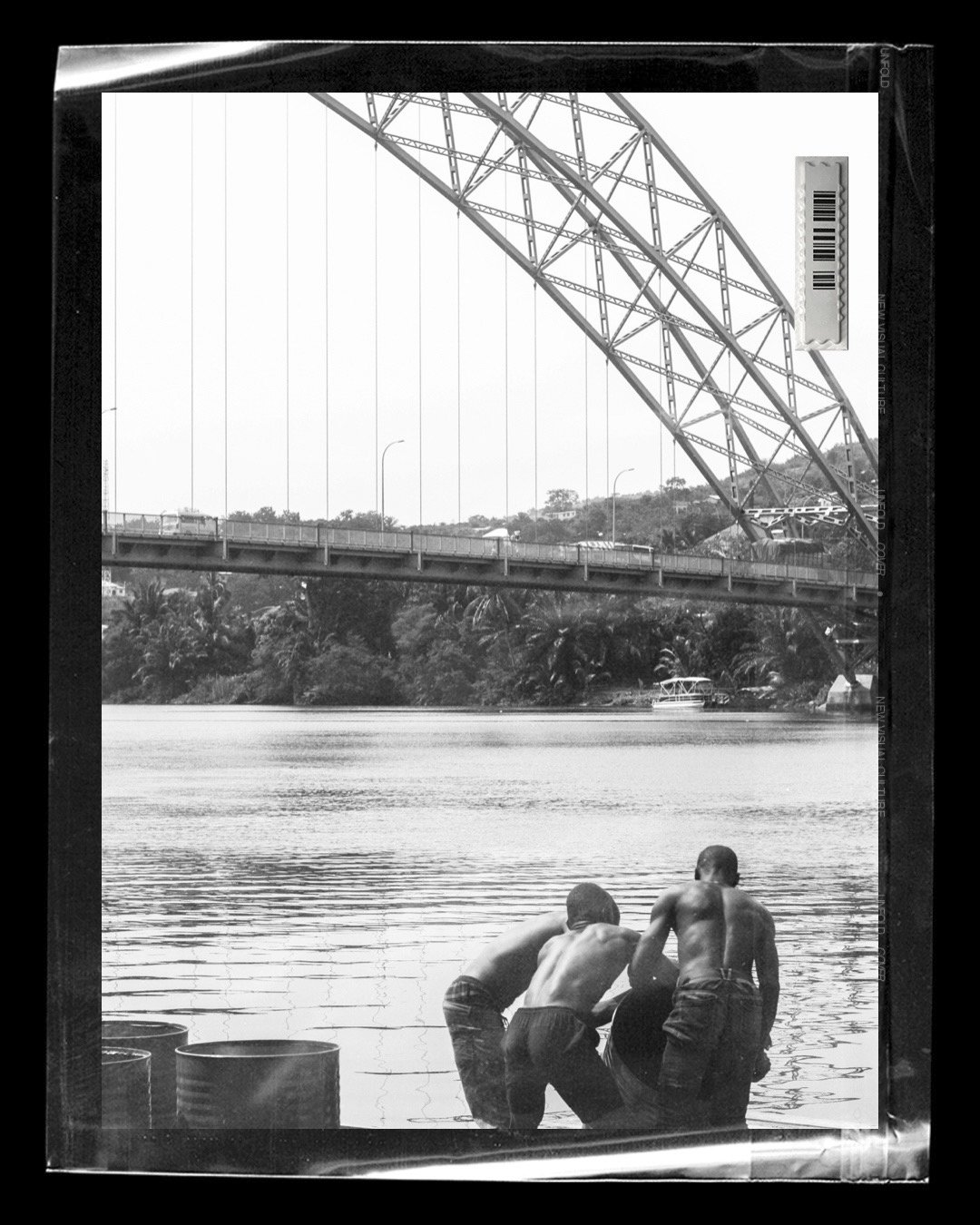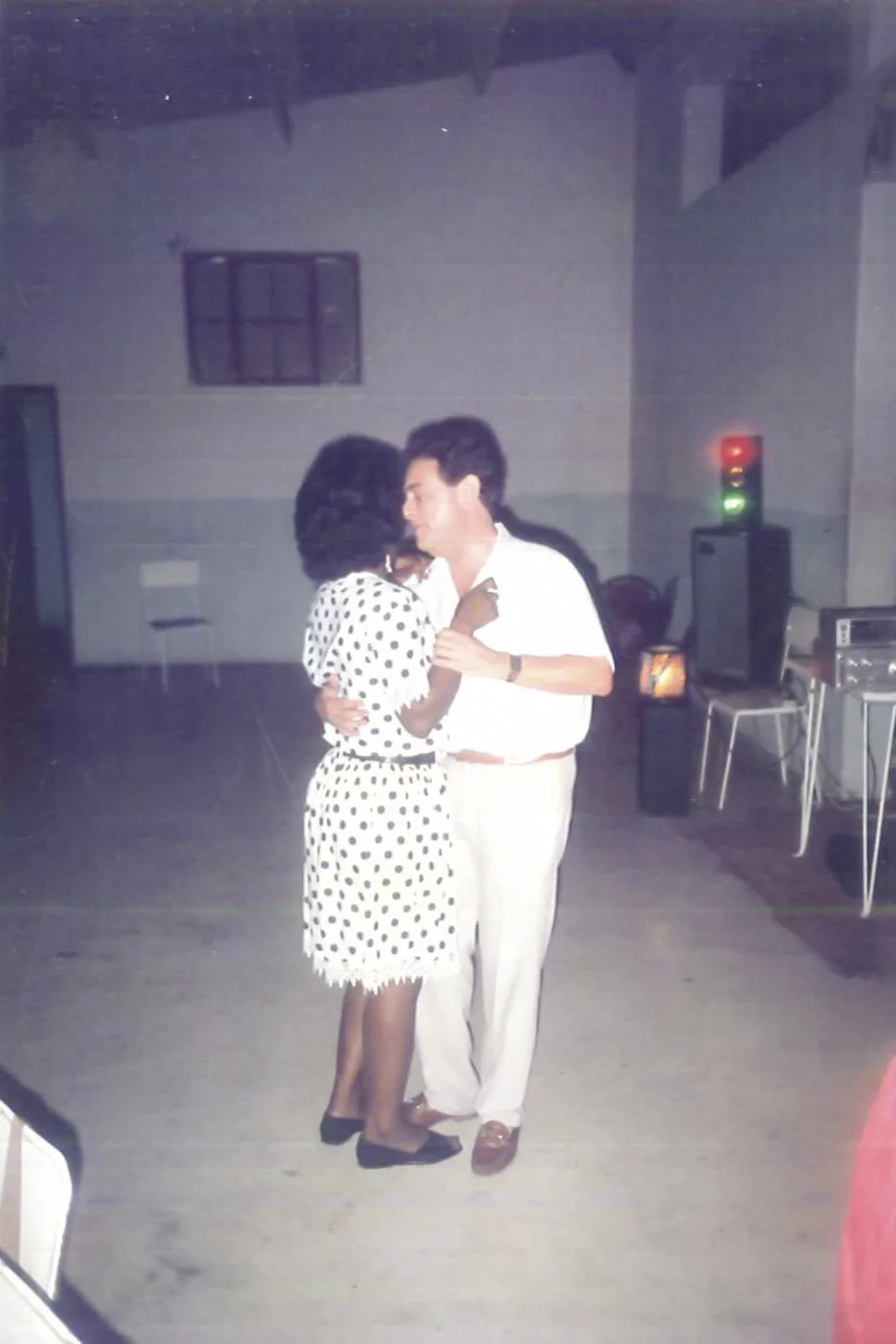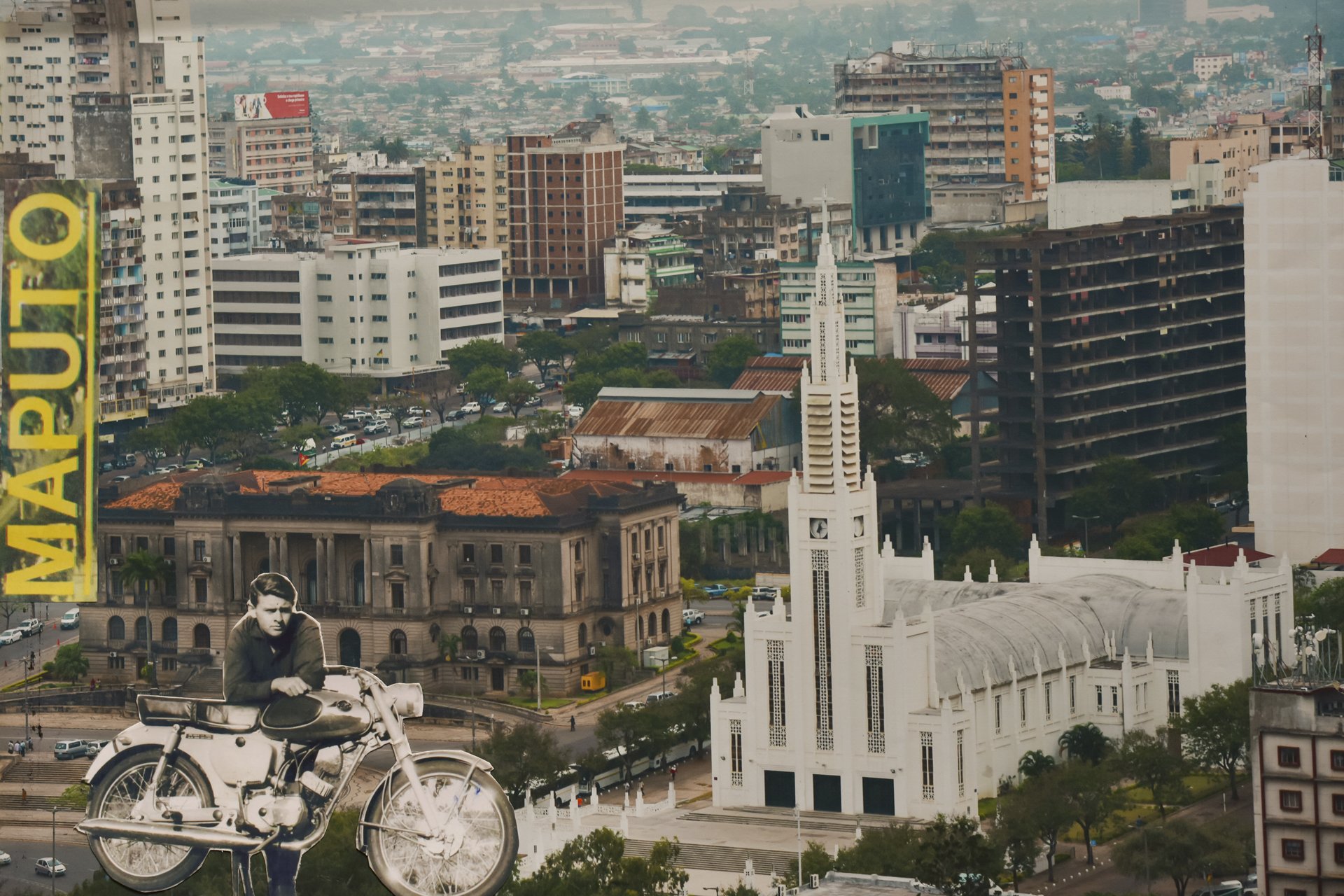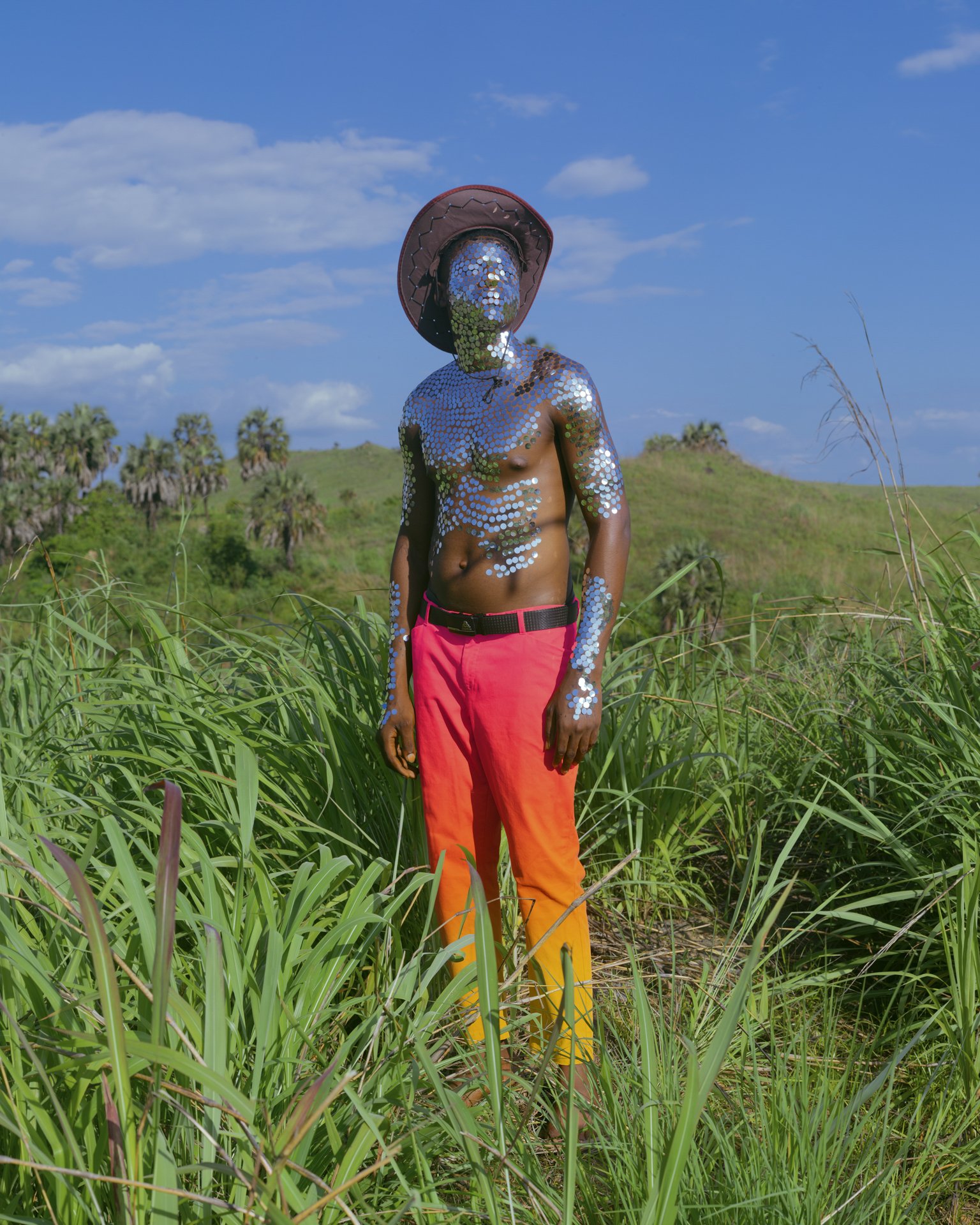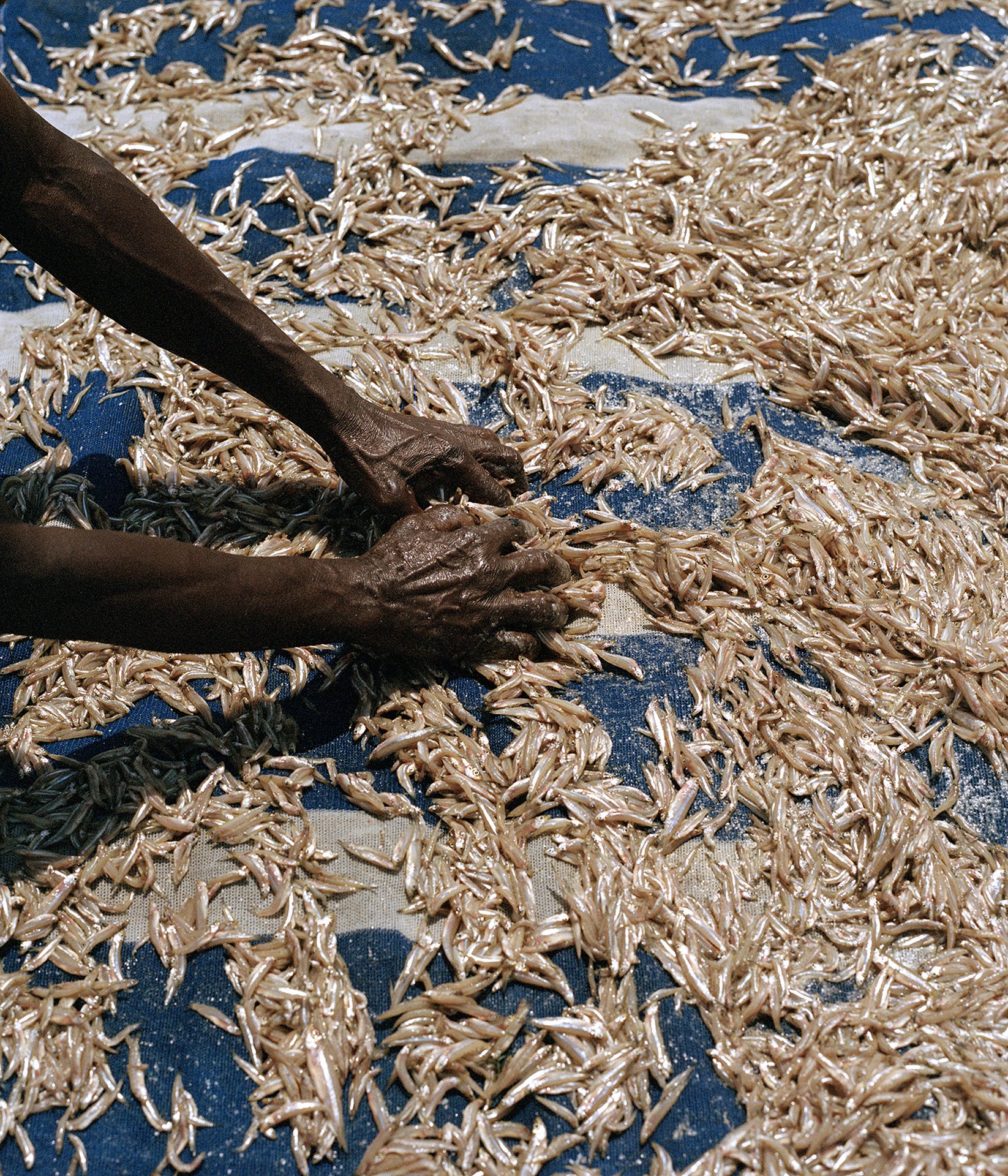CAP Prize 2023 | Shortlist
CAP PRIZE 2023 | SHORTLIST
These 25 shortlisted projects – in alphabetical order by artist– were chosen by a panel of 20 international judges. The shortlist comprises works by: Robin Bernstein, Bright Charles, Kwasi Darko, Yagazie Emezi, Nadia Ettwein, Yassmin Forte, Maheder Haileselassie, Carlos Idun-Tawiah, Jonathan Jasberg, Bontle Juku, Issam Larkat, Mohamed Mahdy, Alisa Martynova, Merji, Obakeng Molepe, Kriss Munsya, Neec Nonso, Emeke Obanor, Léonard Pongo, Inge Prins, Lamees Saleh, Antonia Steyn, Jono Terry, Geremew Tigabu, Anna Verloren van Themaat, Elliott Verdier, Kyle Weeks
Robin Bernstein
Born in 1990 in Cape Town, South Africa. Lives in London, United Kingdom
www.robinbernsteinphoto.com | https://www.instagram.com/robin.bernstein/
Mapalakata, 2023
Untitled. From Mapalakata, 2023
Mapalakata is a word recorded in oral traditions of the area meaning ‘visitors’, that was used to describe Arab and Indian traders who moved through Southern Africa before the time of European colonisation. The word is not commonly used today. This project looks at the transient nature of ‘visitors’ to the landscape.
The project engages with the landscape via a visual reassessment of this key historical and geographical region in Southern Africa. It intends to comment on the broader South African social condition — particularly the relationship South African people maintain with the land they inhabit and narratives of cyclical decay and rebirth. The work attempts to draw attention to how the prevailing history of this region is continuously rewritten as dominant groups erase the narratives bound to their predecessors, each driven to occupy the space for the resources it holds. This process has left an archive of physical and social artefacts which become ephemeral traces of the histories that have played out. By photographically engaging with these ‘relics’ of the past, I aim to highlight the lesser-known historical narratives previously suppressed by dominant political and social forces.
Bright Charles
Born in 2000 in Port Harcourt, Nigeria. Lives in Port Harcourt, Nigeria.
https://dstoryteller.mypixieset.com/ | https://www.instagram.com/_dstoryteller/ | https://twitter.com/_dstoryteller
The Women's War, 2022
Dying To Live. From The Women’s War, 2023
The Women’s War (based on true events) brings us a history of the exploits of the women who fought in the Aba Women’s Riot of 1929.
We realise that African stories are not told by Africans enough, and as creatives, we are keen on using our creativity to preserve these stories through our work. Every image on the gallery walls takes you back to when these events happened, and you can see and feel the pain and blood from the struggles of “These Mad Women”.
Kwasi Darko
Born in 1991 in Accra, Ghana. Lives in Senchi, Ghana.
www.kwasidarkophotography.com | https://www.instagram.com/kwasi_darko/ | https://twitter.com/KeLsDaRk
Burger Movement, 2022
A boy and his bike. From Burger Movement, 2022
Burger in Ghanaian pidgin language means to relocate/elope to another place or country, typically one with better or higher living conditions than where one's from. It also originates from the high migration of people from Ghana to Hamburg, Germany, from the late 70s to the '80s. Scaling down to local usage, the rampant movement of people from other regions and rural areas in Ghana to more urban centres like Accra, Kumasi and Tamale and from these urban areas to other parts of the world is not strange. Continuous uneven distribution of development and resources across the country ensures this movement continues across generations. This photo series documents one fishing community, Senchi, in the Volta Region of Ghana that is heavily affected by this phenomenon. It focuses on a few families that have suffered this displacement of their members, especially sons. During the years I relocated to the community, I spoke and continue to speak to different people, especially those making plans to go, their last days in town and life after their departure. This is a long-term project as I live here fully and want to help find solutions.
Yagazie Emezi
Born in 1989 in Aba, Nigeria. Lives in Lagos, Nigeria.
https://www.yagazieemezi.com/ | https://www.instagram.com/yagazieemezi/
Another Tale By Moonlight, 2021
Pay the Piper. From Another Tale By Moonlight, 2021
Another Tale by Moonlight is an acute photographic re-imagination of European fairy tales that juxtaposes Nigeria's historical, cultural, environmental and contemporary socio-political realities. This project illuminates obscured narratives and the intertwined moral complexities of both cultures.
Nadia Ettwein
Born in 1984 in Port Shepstone, South Africa. Lives in Cape Town, South Africa.
https://www.instagram.com/nadia.inreallife/
Hond, 2023
Looks Like Dad. From Hond, 2023
I was told my mother threw me away like a dog - I’ve never stopped believing that.
We were discarded children in a time when my country was struggling with its demons.
I’m Nadia. Born (.84) and raised all over South Africa.
My sister was three when mom left dad in 1989.
We were raised by parents who fought private battles within a faltering political ideology.
There was sickness outside and at home.
My father joined the South African Army, and my mother legally wrote me off.
I was adopted.
Had Multiple stepparents.
Absence of love.
I am afflicted by my ancestry and heredity.
There are always people who give you up. My work relates to dissociating from painful memories, trauma, rejection, and my current experiences. You find yourself in a situation of instability and displacement of post-apartheid, religion, and child welfare, trying to grow up as a solid human in-between the neglect. There are beginnings and endings, balance and imbalance, and the betweenness which forms a collective memory.
Abuse isn’t poetic, nor was being raised as an Afrikaans girl.
Yassmin Forte
Born in 1980 in Quelimane, Mozambique. Lives in Maputo, Mozambique.
https://www.instagram.com/yassminforte_photos
This is a story about my family, 2022
Military. From This is a story about my family, 2022
My parents fell in love on a dance floor in Quelimane, Mozambique.
He was stationed at the height of the Portuguese occupation of Mozambique, part of the armed forces, and my mother was a local Mozambican woman.
He was destined to return to Portugal.
With independence in 1975, the Frelimo Party (The Front for the Liberation of Mozambique) ordered the Portuguese to leave the country within 24 hours.
He stayed and fell in love.
My images attempt to dissect and navigate the effects of colonialism and migration from my family's history. It addresses three aspects, family, migration and the story of Africans, using family archives and my images. I attempt to investigate how Africans have become the result of mixtures, migrations and colonisation, histories mixed and patterns repeated, and in this way, unpack my own African identity.
The collage exaggerates and emphasises this history; at times, family images are placed on top of the scenes from modern and remembered Mozambique in juxtaposing past and present. I used collage to construct a past and the perception of my own identity.
Maheder Haileselassie
Born in 1990 in Addis Ababa, Ethiopia. Lives in Addis Ababa, Ethiopia.
www.maheder.photography
Between Yesterday and Tomorrow, 2023
National memories III, Shifting identities. Axum Obelisks symbolise pride and testify to 3000 years of Ethiopian history. However, during the recent war in Ethiopia, hundreds of town residents were brutally executed, shifting our memory and outlook forever. From Between Yesterday and Tomorrow, 2023
I read Ethiopia’s history as a child in my father’s books that he left before his passing. Ethiopian society prides itself on having 3000 years of history and defeating colonisation. Remembering is in our cultural DNA. We stand at an intersection, yearning for the past and longing for the future with profound uncertainty.
I superimposed 19th-century archives made by Europeans with images from my current work and family albums. This acts as a metaphor for the overlapping of time and space in one’s memory, speaking to our nostalgia while acknowledging the involvement of the Western world in our history.
The landscape is part of our heritage. Visiting my grandparents' birthplace brought a fleet of memories. It was an initial longing for the presence of my ancestors, followed by a rush of melancholy for the complex and contested future awaiting this generation of Ethiopians.
Identity photos from my family album are layered with archival portraits of Ethiopian rulers and everyday people, bringing a new being into existence, removed further from the original, speaking to the fluidity of memory and identity shifting between personal and collective memories.
Remembering is feeling. It’s involuntarily navigating in a dreamlike state between yesterday and tomorrow.
Carlos Idun-Tawiah
Born in 1997 in Sekondi-Takoradi, Ghana. Lives in Accra, Ghana.
https://www.carlosidun.com/ | https://www.instagram.com/carlosidun/ https://twitter.com/carlosidun
Sunday Special, 2022
The Gospel. From Sunday Special, 2022
I photographed this series as a requiem of my memories.
I was inspired by a close study of the family album and my recollection of growing up in a Christian home. I highlighted the ethos of Sundays from a much more vernacular perspective. I played with visual nostalgia, juxtapositions, colour and gesture to fully extract the roundedness of the traditions of what Sundays typically felt like in Ghana. Also, being conscious of blurring the lines between sanctity and our humanity and underscoring how community and divinity could exist in one place.
My joy is to watch everyone who sees this go back in time. Inciting that delight that can only be found when we look back. Provoking the sweet joys of what our memories could best serve us.
Jonathan Jasberg
Born in 1977 in Los Angeles, United States. Lives in Tucson, Arizona, United States.
https://www.jonathanjasberg.com/ |https://www.instagram.com/seat1aflyer/
Cairo: A Beautiful Thing Is Never Perfect, 2021
Sailors and the Sphinx. From Cairo: A Beautiful Thing Is Never Perfect, 2022
One day, a man stopped me while exploring a neighbourhood that never saw people from other areas of the city, let alone tourists. He asked, “Why are you photographing?”. Excited, I motioned and stated, “Just look at it; it’s beautiful”. He looked and scoffed, “Beautiful?! It’s an old mess”, and left.
The project's title borrows from an ancient Egyptian proverb, "A Beautiful Thing Is Never Perfect". Cairo was named “Most Beautiful City In The World” in 1925 but has gone through a very turbulent century since and thus is not often explored or photographed beyond the tourist sights. These candid photographs are far from perfect, sometimes messy, grainy, and rushed. Through the spontaneity of a mix of classic and contemporary candid street photography techniques and styles, I aim to show moments of joy, sadness, quirkiness, and hope. To not only show a glimpse of the complexity of Cairo and the lives of the people there but also include moments that, even if we come from completely different backgrounds, we can relate to, smile at, empathise with and appreciate life's shared beauty and complexity. A beautiful thing is never perfect.
Bontle Juku
Born in 1998 in Pretoria, South Africa. Lives in Morningside, Sandton, South Africa.
https://www.behance.net/theeartisticmind | https://www.instagram.com/_theeartisticmind/
Lesedi La Hae, 2022
ZANA constructed image. From Lesedi La Hae, 2022
The title ‘Lesedi La Hae’ (her light) speaks to the God essence, the powerful and spiritual energy of the medium of light, which cannot be contained or defined and goes beyond the physical attributes of the medium.
This series functions as a photographic response to the colonial misrepresentations I observed in the Swahili Coast Daughters' (1850–1883) colonial postcard photographic archive. The series seeks to subvert the colonial myths that have historically been imposed onto the black female body through photography by using the construction of photographic lighting techniques and studio space to portray the black body with visibility, centrality, autonomy, regality and respect.
Black women form the central subject of this work as it is, in my experience and view, that black women have suffered heavily from the consequences of colonial misrepresentation imposed on the black body through the photographic medium.
The final series consists of 10 portraits ‘sets’. In doing so, laying out every step of the visual critique bare for the viewer. Each set consists of three sections: the constructed portrait image, the final portrait, and the end note.
Issam Larkat
Born in 1996 in Chlef, Algeria. Lives in Algiers, Algeria.
https://www.instagram.com/issam_larkat
Frantz Fanon, me and the questions, 2022
There were a lot of cinema theatres in Algeria everywhere across the country before they were all closed in the 90s black decade (civil war), the picture in the low middle represents a closed cinema in Oran (rue timpani), and to a lot of people, all turned to TV that has the national channels full of propaganda and dictatorship agendas.
From Frantz Fanon, me and the questions, 2022
“Each generation must, out of relative obscurity, discover its mission, fulfil it, or betray it. In underdeveloped countries, the preceding generations have resisted the work or erosion carried by colonialism and helped in the maturing of today's struggles. We must rid ourselves of the habit now that we are in the thick of the fight.”
When I first read this strong message of Frantz Fanon, it shocked me to the core after being born and raised in Algeria, that he fought to liberate every injustice that colonialism caused. It made me create in my head three-dimensional conversations. First is who Frantz was and why he believed and served my country as an activist and revolutionary for a free Algeria and freedom for Africa; the second dimension was the reliability of his words 70 years ago and how much it is accurate today. And the third dimension is an imaginary vision from my brain to what kind of questions Frantz would’ve wanted us to ask as Africans first and Algerians second of today's reality that we are living and struggling with …
Mohamed Mahdy
Born in 1996 in Giza, Egypt. Lives in Alexandria, Egypt.
https://www.mohammedmahdy.com/ | https://www.instagram.com/mohamedmahdyph/
Here, the doors don't know me, 2022
A boy jumps from the bridge into the canal of Al-Max village, Alexandria, Egypt. Before demolition, every fisherman had his boat and equipment parked in front of his house. Residents used to call this canal the Middle East Venice, as it resembled the beauty and vibes of Italian Venice.
From Here, the doors don’t know me, 2022
This Village is a community of fishers in Al Max, my neighbourhood in Alexandria, Egypt. It was called the Middle East's Venice because it had the same vibes and beauty as Venice, Italy.
One day residents woke up to the news that they had to leave their houses, their history, and possibly their lives as fishers. Now, One-third of the village is gone, and they are like fish in the sea, with nowhere and anywhere to go but no place they can call home. It led me to wonder: What does a home mean? What does displacement mean? And how does it feel just waiting for something to come and change your life forever? In an attempt to understand these questions,
I collaborated with the protagonists from 2016–2022. In addition to documenting their lives in photographs, I gave them a blank paper to write their last letters. People on the shore used to receive messages in bottles containing love letters or someone‘s last words. Now it is the people on the shore who wants to send letters to the upcoming generations and the whole world. we dedicate this project to building awareness and community about what is happening: https://www.mohammedmahdy.com/herethedoorsdontknowme/
Alisa Martynova
Born in 1994 in Orenburg, Russia. Lives in Florence, Italy.
https://www.alisamartynova.com/ | https://www.instagram.com/alisamartynova_/
Nowhere Near, 2021
Untitled. From Nowhere Near, 2021
More than one million immigrants from Africa officially reside in Italy, and an unknown number of undocumented migrants, many of whom have made a perilous and often life-threatening journey to get there. They have all come to Italy for different personal reasons and are celebrated for their individual stories in a way that tries to resist stereotyping of African migrants. A 2016 study by the International Organization of Migrants pointed to insecurity, conflict, and discrimination as the main drivers of migration, not solely economic and work reasons. Discrimination based on social group, religion, or sexual orientation was mentioned by almost half of the study group. In October 2020, the Italian government adopted a decree overturning many anti-immigration policies introduced by the previous interior minister Matteo Salvini, leader of the right-wing Lega Nord (Northern League).
The project was continued on the Normandy coast of France for the Planches Contact festival, where I worked with immigrants from Rwanda, Congo, Senegal, Nigeria, Mali, Sierra Leone and Guinea.
Merji
Born in 1985 in Kenitra, Morocco. Lives in Casablanca, Morocco.
https://www.instagram.com/merjyy/
Aimless Wanderings, 2023
Parking. From Aimless Wanderings, 2023
For a very long time, with my series "Diary of the Bled" and then with "Aimless Wanderings", I created photographic illusions by transforming reality with my camera and my retouching without ever really understanding why, as if the world bored me, as if it was not enough for itself, as if it was only a veil put in front of my eyes to hide the real world, a more magical and intense world. And then later, I understood in pain that it was linked to a visceral fear of the outside world, which I was trying to avoid by "building imaginary worlds for myself, by tending to be elsewhere, to dream". The fascinating question that haunts me is whether these photos are a curse because they keep me in my illusions or a blessing because they represent the last little window on the world of my childlike soul. I hope to find the answer to this question one day.
Obakeng Molepe
Born in 1994 in Krugersdorp, Gauteng, South Africa. Lives in Johannesburg, South Africa.
https://www.rho.co.za/photographers/1202806/obakeng-molepe/personal-projects https://www.instagram.com/sincerelyobby
1754, 2023
Sta-Lee. From 1754, 2023
Named after my hometown postal code, "1754", The aim is to highlight the beautiful parts of the Township and Black culture post-apartheid. Most pre-existing narratives about black people or townships were created by other races' perceptions of our livelihood from the outside. We hardly had the tools or the opportunity to tell our own stories, and the media has done an outstanding job creating the stereotypes that people of colour are uneducated criminals that chose to live in drug and poverty-infested environments. I do not want to echo that narrative too, because growing up in the township, we didn't see poverty, and we weren't raised in a community based on classism; in the Sesotho language, we have a saying " Ngwana ke wa setshaba" which can directly translate to " It takes a village" we had many mothers and fathers who protected and guided us.
I want the world to see everything we have created, from the makeshift tent/shack churches for a place of prayer, the cars, the fashion textures, the food, and the overall lifestyle that has allowed for the birth of many international documented subcultures such as Patsula and Isikhotane.
Kriss Munsya
Born in 1986 in Kinshasa, Congo DRC. Lives in Vancouver, Canada.
www.krissmunsya.com | https://www.instagram.com/krissmunsya
Genetic Bomb, 2022
Fading Frontier. String Theory. From Genetic Bomb, 2022
Genetic Bomb is a photographic project shot in the Democratic Republic of Congo in November and December 2022.
I was born in Kinshasa, DRC and moved to Belgium when I was two years old with my parents. Like many people who have experienced similar emigrations, I carry generational guilt, confusion and disenchantment. The guilt of being a chosen one, one who was granted the opportunity to escape poverty, insecurity and war that colonialism created. The confusion stemmed from the realisation that the warmth, love and energy of my family's native land could never be replaced, no matter where we went. And disenchantment from realising the place we grew up upheld, and continues to uphold, racism and white supremacy directed against us. These realisations raised several questions.
How are we supposed to come together with our homeland? How can we embrace our roots and, at the same time, live in a system that is poisoning them? How can we love if we are a product of hate? Are we doomed to reproduce the same colonial patterns, or do we have the ingredients within ourselves to create a change... a GENETIC BOMB.
This project is approaching those questions from a visual and poetic angle.
Neec Nonso
Born in 1990 in Aguleri, Nigeria. Lives in Lagos, Nigeria.
https://www.neecnonso.com/ | https://www.instagram.com/neecnonso
What was Dead was Never Dead, 2022
Grandmother. From What was Dead was Never Dead, 2022
In 2011, my mother died while trying to bear a child. We buried her near our home and planted a guava tree on her grave. Burying the dead near home is the norm in Nigeria. Some families even bury their dead in their bedrooms. This practice is deeply rooted in our belief that the dead do not 'rest in peace' but embark on a journey to fulfil ancestral duties and reincarnate to reunite with us again. And when a child is born, the child is never named, until after consultation with the gods, to reveal the identity of whom has returned.
In 2021, I embarked on this project, visited families and made emotive portraits of selected individuals believed to have reincarnated. I placed their ancestors beside them like guardian angels by using multiple self-portraits of myself at different angles to examine and exhume memories, intimate family stories, popular myths and taboos surrounding their death, reincarnation and the afterlife.
Emeke Obanor
Born in 1972 in Agbor, Nigeria. Lives in Agbor, Nigeria.
https://www.emekeobanor.com/ | https://www.instagram.com/emekeobanor/
Dark Memories, 2022
Kate's aunty promised her a chance to go to school, but instead, she was made to work long hours in a factory for little compensation while constantly being threatened with violence
From Dark Memories, 2022
"I don't have any pleasant grownup memories. The only place I find happy memories is in my childhood passport photograph". - Uche
The Dark Memories Project is a thought-provoking photograph that tells the stories of victims of child trafficking in Nigeria, who have overcome unimaginable adversities, forced labour, domestic slavery, and sexual exploitation and now seek to rebuild their lives.
The girls and I collaborated in this project to reveal their shared experiences of being exploited by their wards and traffickers and the inhumane treatment in the hands of their "buyers".
This partnership reveals their courage to speak out after escaping the grasp of their handlers, to provide insight into the abuses that they have experienced, and to raise awareness about the issue of trafficking and the need to take action to prevent it and support victims, as well as their motivation to set out on the quest to reclaim their lives through counselling and their dignity through formal-education.
The victims attend periodic counselling section organised by Christian counsellors. In reminiscence therapy, the subjects express themselves through their infant photographs, which are their happy memories but remain blurred until they are ready to fully reveal themselves on their journey toward discovery, healing and recovery.
Léonard Pongo
Born in 1988 in Liège, Belgium. Lives in Kinshasa, Congo DR
https://www.lpongo.com/ | https://instagram.com/leonardpongo/
Primordial Earth, 2023
Untitled. From Primordial Earth, 2023
Primordial Earth is an experimental documentary project that relies on technical inaccuracies to translate the idea that vision is limited and man is biased. Inspired by Kasaï traditions (southern DRC) that where parts of reality exist outside of human's limited reach, the project uses "Full Spectrum" cameras to create images "touched by the invisible" and impacted by wavelengths invisible to humans.
By photographing the landscape of the Democratic Republic of Congo and focusing on the places, objects and shapes mentioned in Congolese traditions, the project recreates a visual narrative connected to the country's traditional tales and stories and which is based on a physical experience of the landscape. Photography becomes a tool to connect with the land. It creates a dialogue between the country's incredibly varied landscape – a character with its own will and power – the inspiration from traditional symbols, stories and philosophies, and my presence as a limited actor trying to reconnect with this heritage. The space depicted becomes an allegorical tale revolving around genesis, apocalypse and eternal return, questioning our relevance and relationship to nature in a constant cycle of life & death as part of a natural cycle originating in Congo.
Lamees Saleh
Born in 1994 in Saudi Arabia. Lives in Cairo, Egypt.
https://www.lameessaleh.com/ | https://www.instagram.com/lameessaleh_/
Indefinitely, 2023
An age progression picture of Hala, as she is now 15, by a British forensic artist named Tim Widden. On the left is a paper written by Hala for school homework which she wrote five days before the kidnapping. ATTACHING the two images separately after. From Indefinitely, 2023
The latest official government statistics reveal that Egypt witnesses up to three kidnappings per day on average. In 2012 Two children were kidnapped per day for ransom, and the number increased to Five per day in 2013. Child Helpline statistics reveal that more than 2,264 children got kidnapped In 2018 and 2019.
Indefinitely documents the lives of the families of kidnapped children through a map. The map’s starting point is forty years ago, with a family still searching for their daughter, leading to other families' stories following the 2011 revolution and including various reasons for abduction. In the wake of the 2011 revolution, no measures were taken to handle the problem and limit its continuity, starting with the problem of the Egyptian birth certificate, which can be easily forged, no forensic age progression, and the lack of a unified database for information missing children. Hope remains the only thing left for bereaved families after they are mentally and financially exhausted from the long journey of searching for their children in all the governorates of Egypt.
Antonia Steyn
Born in 1978 in Bloemfontein, South Africa. Lives in Cape Town, South Africa.
https://www.antonia.co.za/ | https://www.instagram.com/antoniasteyn
Inge Prins
Born in 1977 in Pretoria, South Africa. Lives in Cape Town, South Africa
www.ingeprins.com | www.instagram.com/inge_prins
Anna Verloren van Themaat
Born in 1980 in Pretoria, South Africa. Lives in Cape Town, South Africa
www.annaverlorenvanthemaat.com | www.instagram.com/annaverlorenvanthemaat
Bellville Paradise, 2022
Die beoordeelaars. From Bellville Paradise, 2022
The emergence of modernist architecture in South Africa is inextricable from Afrikaner nationalism and the Nederduitse Gereformeerde Kerk (Dutch Reformed Church). Built during high apartheid, these physical spaces embodied conservative white male supremacy.
The genesis inspired for 'Bellville Paradise' came from a residential house in the Cape Town suburb of Bellville. The house was designed by APS Conradie, the architect of many modernist churches in South Africa - a location where church and home were rendered an extension of each other.
The project debunks '70s South African culture (into which the collective was born and from which they drew inspiration). It is a commentary on the haves' obsessive-compulsive wealth accumulation and opulence.
The three protagonists seamlessly embrace masculine and feminine, young and old, with a fluidity strictly prohibited in apartheid South Africa. The tongue-in-cheek jellies, a staple of every social event and church bazaar of the 1970s, symbolise this flexibility.
They are the fathers, the sons and the holy mothers of 'Bellville Paradise'.
Bellville Paradise is a collaboration between Inge Prins, Antonia Steyn and Anna Verloren van Themaat.
Jono Terry
Born in 1987 in Harare, Zimbabwe. Lives in London, United Kingdom.
http://iamjonoterry.com/ | https://www.instagram.com/jonoterry
They Still Owe Him a Boat, 2023
From They Still Owe Him a Boat, 2023. Rattle & Skirt
When Cecil John Rhodes duped King Lobengula into signing the Rudd Concession, it paved the way for the colonisation of present-day Zimbabwe. Of the many things promised to King Lobengula in exchange for signing the concession was a boat, which he never received. This work explores the colonial legacy of Lake Kariba, the dualities that continue to exist in this place and broader contemporary Zimbabwean society.
‘They Still Owe Him a Boat’ aims to challenge my own limited, white experience of a place I love, Lake Kariba, the largest man-made lake in the world. There are two sides of Kariba: Zimbabwe and Zambia, an imaginary line demarcate the lake in two, roughly following the course of the Zambezi River, and there are two histories and two very different experiences – those of the white and those of the black population.
The Zambezi Valley had long been a place of myth and folklore, home to magical creatures - NyamiNyami and Kitapo, Guccheche and Kapongashiri - and a way of life that acknowledged and celebrated them. In Kariba’s creation, we had destroyed and displaced. This body of work is about a mythical place that exists for some but not for others.
Geremew Tigabu
Born in 1987 in Gonder, Ethiopia. Lives in Addis Ababa, Ethiopia.
https://geremewtigabu.com/ | https://www.instagram.com/ghost_ti
Eye of the Storm, 2021
Bale, Oromia Region. From Eye of the Storm, 2021
It has been just over a year since the conflict in Ethiopia broke out. So much destruction; thousands perished, and properties were destroyed, reduced to rubble.
During the early days of the conflict, I watched my mother’s anguish and pain, hidden largely from the outer world. But it was there, and watching as grief seeped into her was a difficult reality. As the war expanded into northern Ethiopia, affecting my father and another part of my family, so did the heartbreak. As war enveloped Ethiopia, it did my family as well.
Incessantly checking the news on YouTube and the TV screen, existing in an era of manufactured lies by media, living in uncertainty, swimming in multitudes of ‘What-Ifs’, has become our standard. Then there are the nuances and the fast-paced development of reality. How does one process it? How does one place themselves in it all? There is the joint pain, the communal awareness of the reality in Ethiopia, but then there is the individual experience. Where do you place yourself in it? How do you translate yourself in all that is evolving?
Solitude
Elliott Verdier
Born in 1992 in Paris, France. Lives in Paris, France.
https://elliottverdier.com/ | https://www.instagram.com/elliott.verdier/
Reaching for Dawn, 2020
Junior II, Prince and Grace in a cemetery, Monrovia. From Reaching for Dwan, 2023
Of the bloody civil war (1989-2003) that decimated Liberia, its population does not speak. No proper memorial has been built, no day is dedicated to commemoration. The country, still held by several protagonists of the carnage, refuses to condemn its perpetrators. This deafening silence, which resonates internationally, denies any possibility of social recognition or collective memory of the massacres, immersing Liberia in an endless feeling of abandonment and drowsy resignation. The trauma carved into the population’s flesh is crystallised in the society’s weak foundations, still imbued with an unsound Americanism, and bleeds onto a new generation with a hazy future. Liberia is suffering a long, anonymous night, a decaying sludge of existence miring pain and innate loneliness. This photographic and audio work explores the mechanisms of its resilience and the invisible resorts of psychic trauma in war.
Kyle Weeks
Born in 1992 in Windhoek, Namibia. Lives in Amsterdam, Netherlands.
https://www.instagram.com/_kyleweeks_/
Good News, 2023
Nana. Accra, Ghana. From Good News, 2023
In Accra, Ghana – rapid social transformation brings new cultural shifts – fuelled by an exuberant and free-spirited young generation. This generation looks outwards, designing and building its dreams with the things at its disposal.
On my first visit to Accra in 2016, the impeccable taste of its fashion-conscious youth made a lasting impression. Cutting through the outdated tropes of Africa’s visual representation, the city’s cosmopolitan locals – with their proud and authentic approach to style – evoke the portraits of pioneering West African photographers like James Barnor, Malick Sidibe, Philip Kwame Apagya and Seydou Keita. Defiant and confident, this smartphone generation demands to be seen, and the ubiquity of cameras offers another means of self-expression and identity-building.
Over the past six years, I travelled to Ghana intermittently, staging portrait sessions with several fashion-forward locals. Alongside landscapes and still lives, the portraits I shot – spilling between city streets and domestic interiors – put youth at the forefront. Posing like models, these young men and women defy expectations, blurring the lines between conventions of masculinity and femininity, and reflecting the significance of style as a marker of selfhood in the contemporary African city.





















